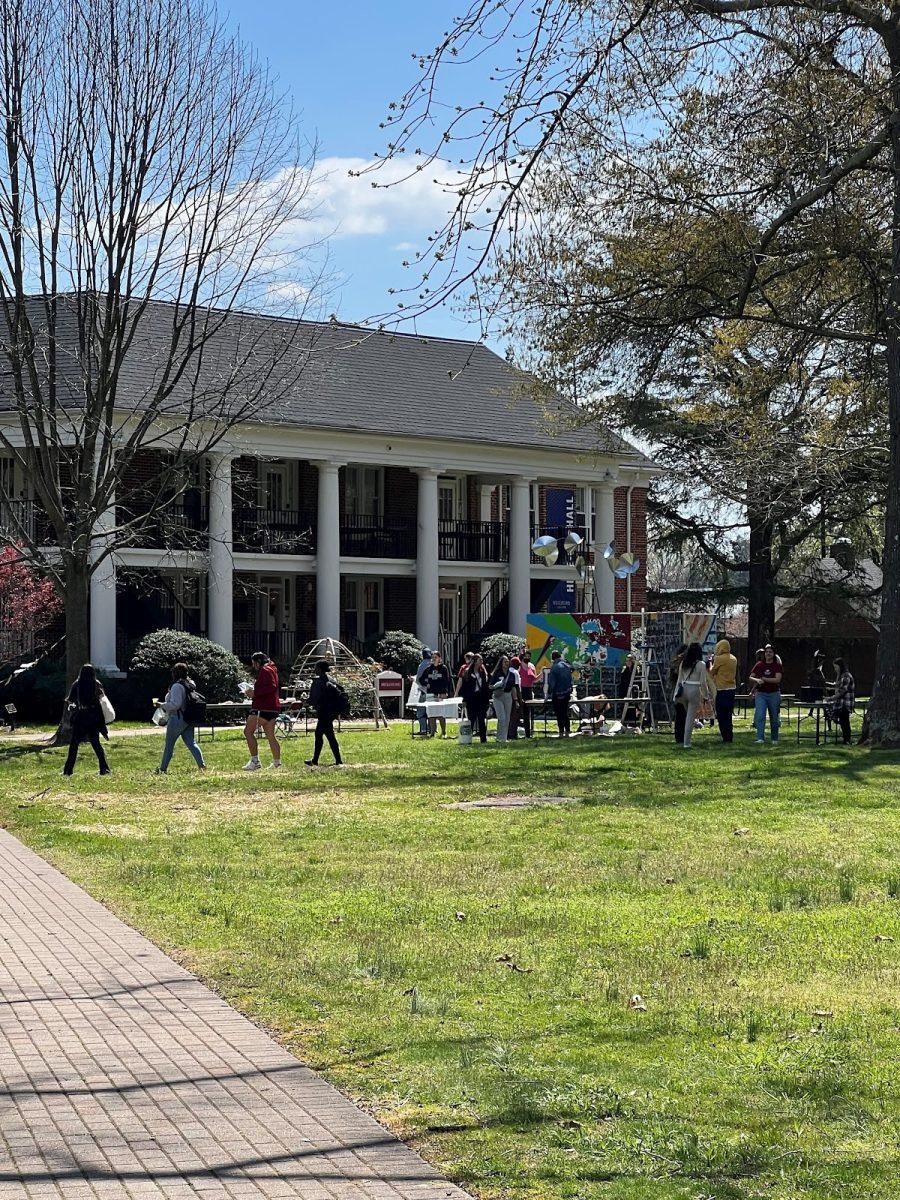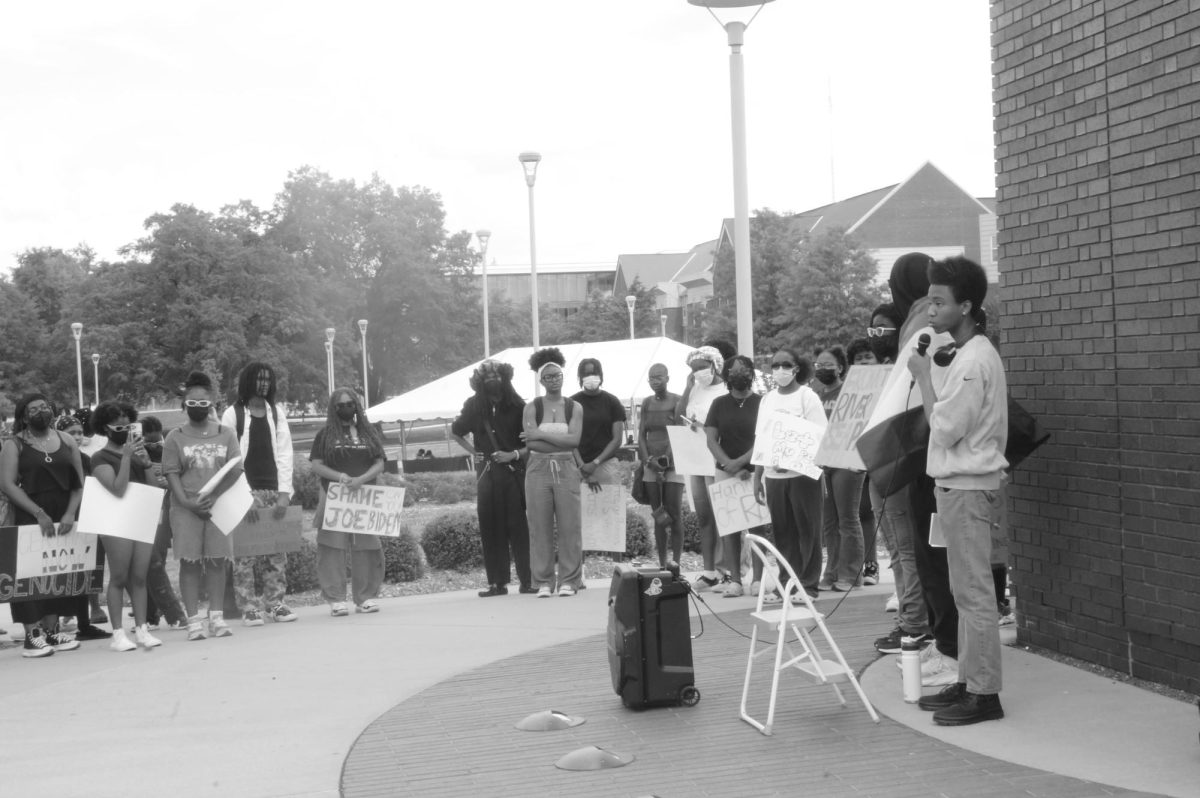On April 11, keynote speaker and sports radio host Adam Ritz visited Guilford College, sparking concerns when community members learned that he spoke to students partly on his experience as a convicted sex offender.
Ritz came to speak with male student athletes about the dangers of alcohol and other substances and discussed the consequences of impaired judgment. His background and the unexpected nature of his visit led to backlash throughout the campus about how consent education is addressed on campus, especially for male athletes.
“There are plenty of effective sexual violence prevention speakers who are not former registered sex offenders,” said junior and student body president Molly Anne Marcotte. “I would urge campuses and athletic teams to consider these speakers first.”
Ritz’s seminar began with him explaining his job and showing the student athletes photos of himself with NFL icons such as Peyton Manning and Mike Tomlin.
Afterwards, he transitioned to the main topic of discussion: how mistakes can sabotage a career and change a life for the worse.
He told the stories of players whose careers were damaged by poor decisions which began with drinking alcohol or using drugs.
“They don’t look like racists, rapists, murderers or anything else,” said Ritz. “Neither do any of you, but one wrong decision can change everyone’s view of you.”
After sharing all the incidents, Ritz presented a slide that silenced the crowd. It was of his own crime.
“I was shocked and didn’t think it was serious at first,” said first-year baseball player Ben Gaster. “It was crazy to hear that it was real.”
In 2004, Ritz was charged with sexual battery of his family’s 22-year-old babysitter, spent six months in prison, was required to receive alcohol counseling and is now registered as a sex offender.
He told the now-frozen crowd the detrimental consequences of his actions and how he would never want this to happen to anyone.
“The shift in the crowd was insane,” said first-year basketball player Moody Henderson. “Everyone’s laughter from the beginning completely changed to silence so quickly. It is similar to how you can be having fun one moment, and a wrong decision can take all of that down.”
Although Ritz continuously emphasized how these things can happen to anyone, many felt that his status as a sex offender was a reason not to bring Ritz to campus to educate students. His visit made many students on campus feel unsafe because the talk emphasized how sexual assault impacts the perpetrator instead of the victim.
“He is a registered sex offender which is likened to a recovering alcoholic speaking about substance abuse,” said Marcotte. “The athletic department and dean of students … did not consult the dozens of sexual assault experts and advocates nor the full-time paid sexual assault prevention coordinator.
“It is alarming that (Ritz) was coming on this campus and profiting from an experience he inflicted.”
Also, only male athletes were in attendance, while others were not allowed to attend.
“Male autonomous spaces do not have to mean violently exclusive spaces,” said Marcotte.
However, many who were present at the speech felt the talk was helpful.
“(Ritz) came to talk to us about decision-making,” said first-year football player TJ Poulos. “He didn’t come to tell us, ‘Don’t rape people.’ We know that. He was talking to us about making the right decisions because of the everlasting consequences.”
But because of the event’s planning being obscured, some had problems with Ritz’s visit.
“Bringing a convicted sex offender on our campus without consulting anyone (involved in consent education) is messed up,” said Sexual Assault Awareness, Support and Advocacy Officer and sophomore Katie Karelson. “The message, as far as I know, was not a positive one or a helpful one. The message should never be ‘don’t get in trouble.’ It should be ‘don’t do the act.’”
However, moving forward, some are optimistic about the discussion that emerged from this event.
“This brought attention also to the lack of sexual assault education that the athletic department has given the athletes,” said Karelson.
“I think a lot of athletes feel like the blame is always on them for sexual assault, and that’s so wrong because a rapist can look like anyone and be anyone. I just think the whole community needs to have more conversations about this, and it needs to involve everyone.”







